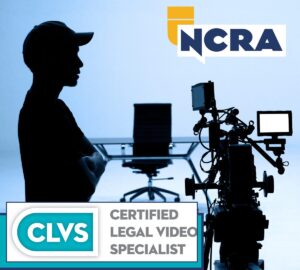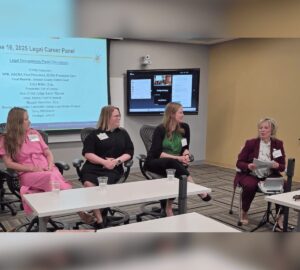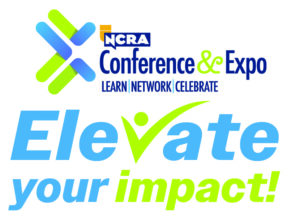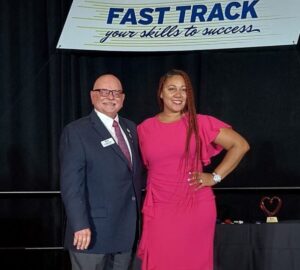Last month, the JCR Weekly ran as a question of the week, “What is the most unusual job you have had using your court reporting skills outside of the traditional legal arena?” The question, which was posed on behalf of NCRA’s New Markets Task Force, elicited a number of responses ranging from captioning on a cruise ship to trying to get a statement from a dying inmate in the emergency room to working as an extra on the show Bloodlines on Netflix. However, one response was so unique that it led the JCR Weekly team to reach out to the respondent and find out more. NCRA member Nancy Hopp, RDR, CRR, CMRS, NCRF Trustee, chief operating officer of Midwest Litigation Services, St. Louis, Mo., was kind enough to share some of her more memorable jobs.
By far, one of the weirdest reporting jobs in her career that Hopp recalls took place at a bull auction. According to Hopp, “There’s not a lot to tell, unfortunately. It was basically standard auctioneer patter, although at an understandable speed, thank God. Some of the auction items were bulls, and some were … well, bull semen.”
Other interesting jobs Hopp said she has had over her career included flying to Texas to take statements in the investigation of the Space Shuttle Challenger disaster. “I went to both the Johnson Space Center and also to the University of Texas at Austin to report interviews with scientists involved in the design and launch of the shuttle. I definitely felt like a witness to history in the making.”
Hopp also had the opportunity to work as one of the captioners for Pope John Paul II’s visit to Saint Louis back in 1999. “It was an enormous event, with massive media coverage. Former President Clinton as well as Vice-President Gore and their wives were in attendance. The venues included the airport, outdoor plazas, and several huge auditoriums. The terminology and accents were challenging and the security very, very tight. It was a once-in-a-lifetime reporting experience, and I was honored to be on the Midwest Litigation Services team providing the captioning services for this historic event.”
Then, of course, there was the time that Hopp served as a scribe for two disabled law students taking the essay section of the Illinois Bar exam. “One student was paralyzed from the neck down, and the other had the most severe case of Parkinson’s disease I’ve ever seen. In both instances, they were unable to write and so would dictate their answers to me. Believe me, it’s a profound and intimate experience to serve as someone’s hands. Needless to say, I kept saving my CAT file every minute, horrified at the mere thought that a technical snafu could lose their work. They were both really nice guys and very inspiring as well. I can’t imagine the challenges they faced in their schooling as well as in their daily lives, but I know the paralyzed gentleman passed the bar and became a practicing attorney. I never did find out if the other fellow passed or not.”
In another instance Hopp was retained by Money magazine to report a generally wide-ranging discussion by a dozen married couples on their finances and how the economy affected them. The facilitator used Hopp’s transcript to generate quotes for his magazine article.
For several years, Hopp said she also reported both lecture and training sessions for consultants at the Arthur Andersen Center for Professional Education, located on a campus in the Chicago suburbs. “Experienced consultants would come from around the world to hear lectures by luminaries such as former U.S. Secretary of Defense Caspar Weinberger and also Nicholas Negroponte, founder and chairman emeritus of Massachusetts Institute of Technology’s Media Lab, who spoke knowledgeably about the Internet’s vast potential when it was still in its relative infancy and Mosaic was the most widely used browser.”
Hopp said the most interesting part of that job, though, was reporting the training sessions for young consultants from around the globe. “I felt like I was going to business school but without the homework or tuition! They discussed so many interesting business problems, and there was a real creativity to both the analysis and the people skills required to make process improvements. And, of course, they were extremely interested in my machine and realtime capability,” she said. “One young guy who had been sitting behind me, watching my screen, asked if it was voice-recognition technology. Needless to say, I set him straight.”
Hopp said she also spent several years reporting various meetings for the National Cattlemen’s Beef Association. “They would fly me around the country and serve some very delicious high-protein breakfasts! There were also many renowned speakers who addressed their Board of Directors meetings, including the U.S. Secretary of Agriculture and Secretary of the Interior at the time, as well as the Olympic skater Sasha Cohen. But most interesting to me were their research meetings, where food scientists would come in and report on the results of their research grants. I learned so much about protein and nutrition.”
Finally, Hopp said that her peak experience was reporting the NCRA business meeting. “Boy, talk about feeling the pressure to do a good job! As you can imagine, though, all the speakers were very understanding of the challenges of the job and treated me well. Looking back, I’ve sure had an interesting reporting career, haven’t I?”






